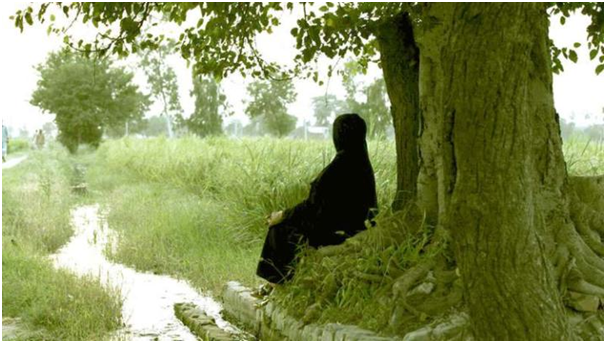'A Girl in the River': Murders in the Name of Honour Rampant in Pakistan

ISLAMABAD(IPS): More than 1,000 women are killed in the name of honour in Pakistan every year, according to official figures. But the actual numbers are believed to be much higher. Saba Qaiser, 19, would have been one of them had she not miraculously survived drowning in a river after having been shot in the head. Unsurprisingly, those who tried to finish her off were none other than her own relatives her father and uncle as happens in most such cases of 'honour'crime.
Sharmeen Obald Chinoy's brilliant 40-minute documentary A Girl in the River: the Price of Forgiveness, is the story of this 19-year-old from Gujranwala.
Nominated for an Academy Award, the short film is surely a powerful portrayal of the plight of a victim of honour crime. But it is not just the story of a brave girl who defied death and is now living happily with the man she loved and risked her life for. She is back to life with a scar left by the bullet that pierced her cheekbone, but is still haunted by the incident.
It is more about the law of forgiveness that protects the killers. Saba's father and uncle are now free and with no remorse for what they had done.
Under the pressure of local elders and the clan she has forgiven her tormentors. Perhaps they would have killed Saba in the second attempt and even then would have gotten away with murder using the provision of the law that allows a family member to forgive the perpetrator.
By reaching her, Ms Chinoy may have saved the life of that girl from Gujranwala. But hundreds of other women killed every year in this land of the pure are not that lucky.
The documentary reveals the various forces that come into play in this 1(ind of situation. While the law of forgiveness marginalises the role of the state, it gives sway to the local elders who force a compromise. The odds are invariably stacked against the victim and the sympathies are with the perpetrators as happened in the case of Saba. The village elders who played the role of arbiter arranged the compromise were clearly on the side of the father whose honour, they argued, was violated by her action.
Poverty and circumstances too become a factor in limiting options for the victim. Saba would never have forgiven her tormentors had she not been afraid of being shunned by the community and the state being unable to provide her protection. She also faced the traumatic reality of her own father having tried to kill her, and then the family ostracising her. The offenders come out triumphant in the bargain while the onus lies on the victim.
Of course, there was no question of shame and remorse; instead the brutal act appears to have further empowered Saba's father who felt that he had done something right that earned him immense respect in the community. He boasted that his action had improved the prospect of marriage for his other daughter.
Such grandstanding by a criminal is perhaps the most disturbing part of the documentary. One can hardly find any such example of the state being a silent spectator in the face of such defiance. One wonders if the murderers would have had the same response from the community had they been punished for the crime. Perhaps the narrative would have been very different if there was no legal provision of forgiveness.
The problem with 'honour' killing as described by Chinoy is that it's considered to be in the domain of the home. A father kills his daughter or a brother kills his sister and nobody files a case as they feel it would bring shame to the family. This mindset is not just regressive, it actually provides impunity to the murderers.
For long, human rights groups have been fighting to get honour killing to be treated as a crime against the state to make the provision of forgiveness ineffective But it seems hard to convince the lawmakers. The biggest contribution of the documentary is that it has opened up a national discourse that crimes against women have nothing to do with honour.
Whether or not the documentary will fetch a second Oscar for Chinoy, the film has already made a powerful impact even drawing the Prime Minister's attention to the issue. One is, however, not sure if it is the Oscar nomination or the message in the film itself has prompted Sharif to recognise the killings in the name of honour as a serious problem.
One hopes that his interest goes beyond screening the film at the Prime Minister's Office. There is an urgent need to amend the law to remove the provision of forgiveness that empowers people like Saba's father.
(The writer is an author and a journalist)
(INTER PRESS SERVICE)


